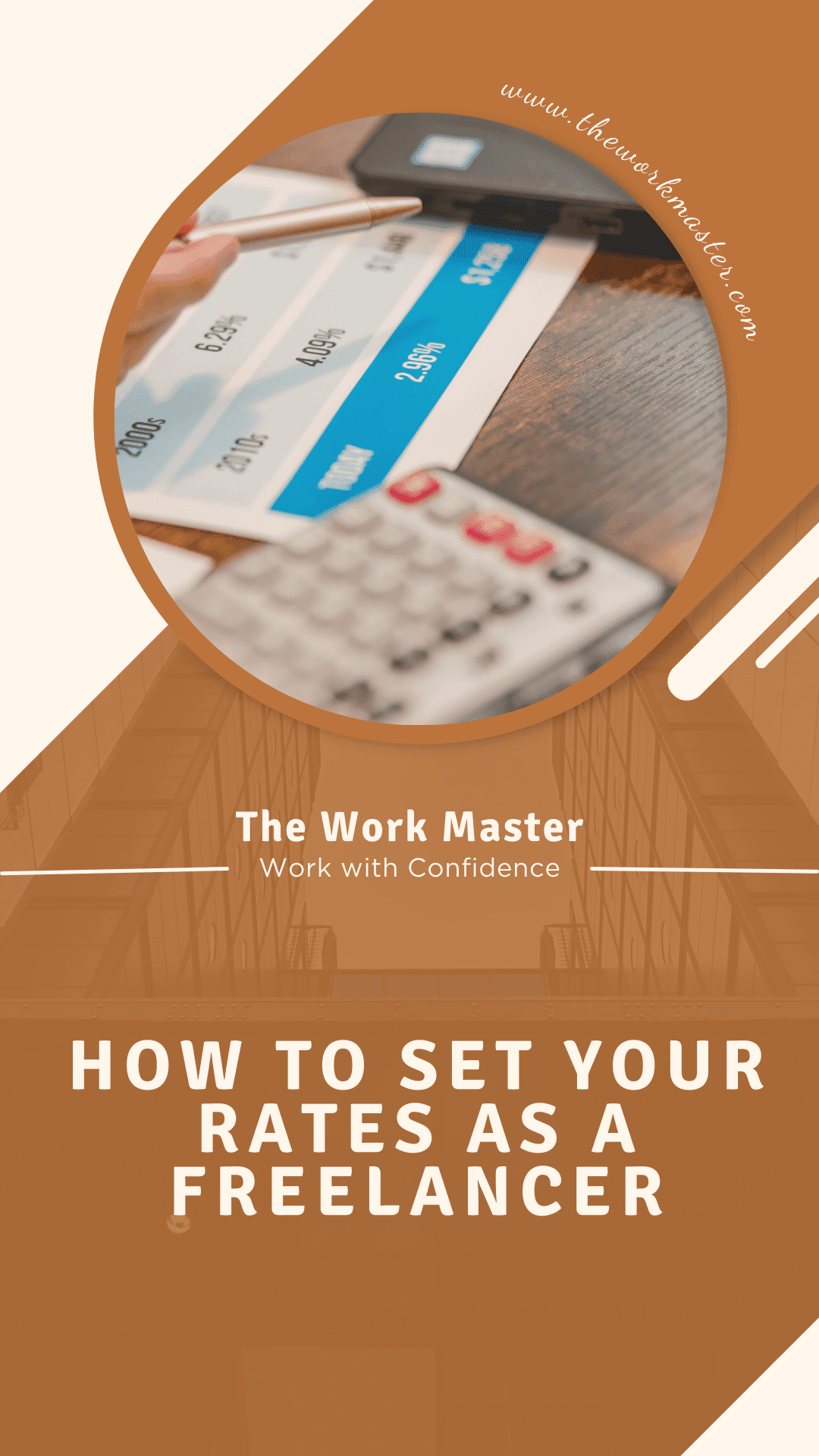Прочети на Български ==> Read in English (US)
With the rapidly changing economy, freelancing is a popular career path nowadays because it is flexible and independent, allowing people to realize their interests.
The need to establish the right rates cannot overemphasized as more professionals opt for being freelancers.
This article takes a closer look at the complexities involved in setting freelance rates and offers useful tips for freelancers to manage this crucial aspect of their business.
Rates for Different Types of Freelance Work
Freelance pay differs significantly across industries based on skill level, demand, and the complexity of work.
Whether you are a writer, graphic designer, or programmer, knowing the average rates in your niche is essential.
By performing comprehensive research and market analyses, freelancers can establish competitive prices that meet industry standards and reflect their qualifications.
Let's look at some of the popular freelance fields together with their hourly rates:
🠊 Data Entry - In general these freelancers earn around $5 to $30 per hour, with the potential of higher income in some of the specialized tasks.
🠊 Graphic Design - These professionals have rates that vary widely from $20 to $150 per hour, but the average goes around $35. This number would be different based on the level of experience, qualifications, etc.
🠊 Virtual Customer Service - A typical payment for this position is $10 to $30 per hour, with the tendency to increase due to the popularity of the job.
🠊 Freelance Writer - Since the payment is highly dependent on the quality of the work the amount can vary from $15 to $150+ that is offered by different companies. It is also usual for this field to set the rates per word, instead of per hour.
🠊 Web Developer - Range: from $30 to $200 or more per hour. Depends on the experience, skillset, and location of the client or freelancer.
🠊 Social Media Evaluator - Payment: $10 to $25 per hour based on the company to work with and the job position. As you climb in the hierarchy, you will earn more in this work area.
🠊 Search Engine Evaluator - Usually, from $12 to $25 per hour, based on the project, the client, and the location. Consider reading online reviews of other freelancers, to get a deeper understanding of what to expect financially.
🠊 Photographer - The usual rate is around $50 to $300 or more per hour. Based on various factors you can charge even higher.
🠊 Transcriptionist - Pay rate ranging from $15 to $40 per hour. Transcription is a large field that includes medical, legal, general transcription, etc. Specialized transcription usually costs more.
🠊 Social Media Manager - Rages from $15 to $150 or more. The best payments are for freelancers who can provide proven results and value to their customers.
🠊 Virtual Assistant - Hourly rate of $10 to $50 or more based on the experience, the complexity of tasks, and the client's budget.
Hourly Rate vs. Per Piece or Monthly Retainer
The decision to charge an hourly rate or per piece, or receive a monthly retainer involves many aspects such as the type of project and clients’ preferences.
Transparency and equity are created with an hourly rate, but perhaps per-piece pricing provides flexibility and encourages efficiency.
Freelancers must determine each payment option's pros and cons to maximize their income, client satisfaction, and general project success.
Comparing Beginner vs. Experienced Freelancer
However, when it comes to setting rates, this can prove to be even more difficult for novice freelancers who are trying to find their way in the world of freelancing.
On the other hand, experts in freelancing know how to negotiate and ask for higher rates based on their track record and good reputation.
For beginners, gradual rate increases as they gather experience and build a strong portfolio are very important for proving their worth in the market.
Importance of Qualifications for Determining Pay Rates
Qualifications include education level, certificates, and outstanding portfolio among others.
Clients tend to associate higher qualifications with more skills, hence justifying premium fees for experienced professionals.
Focusing on lifelong learning and professional development allows freelancers to charge high fees and keep up in their profession.
How Important Is Location When Choosing Pay Rates?
The client’s location is also important in determining the freelancing rates. Freelancers who work in areas with high costs of living or strong economies may be able to ask for higher rates from their clients.
This is motivated by the need to adhere to competitive standards of quality and efficiency in their projects.
Additionally, clients in high-margin industries or with niche requirements may also pay more competitive rates to attract quality freelancers who will deliver results.
On the other hand, clients who are from areas with low economic development or limited budgets may provide lower pay rates due to their financial restraints and the current market situation.
Likewise, the place of a freelancer also affects pay in freelancing. Freelancers from countries with high costs of living usually ask for better pay to ensure that they can survive.
They can use their geographical advantage to obtain higher compensation, especially when bidding for projects with clients from richer areas.
Alternatively, freelancers from areas with lower living standards may be prepared to accept low pay rates which enables them to compete on an international market.
Nevertheless, even freelancers from areas of inferior economic opportunities may search for reasonable payments according to their skills and experience thus substantiating the necessity of balancing market forces with individual situations.
Average Freelance Rate
The average rates that are observed in the freelance industry provide a benchmark for establishing competitive prices.
The worldwide average hourly freelance rate is $28, much higher than the $21 average rate two years ago.
~ Payoneer's 2022 Global freelancer income report
Geographical variations in rates are based on factors such as location, specialization, and demand. By keeping a look over industry trends and market dynamics, freelancers can make well-informed decisions for their pricing strategy.
How to Use a Freelance Rate Calculator to Determine My Pay?
A freelance rate calculator is a simple tool that you can use to set your fee. First, enter necessary information such as your preferred salary and estimated spending.
These calculators consider different aspects including taxes, overhead costs as well as profit margins to come up with competitive rates.
In giving you a broad view of your financial terrain, they equip you with the ability to charge reasonable prices for your services and yet be competitive in your industry.
Armed with these calculators’ findings, freelancers can negotiate with clients from a position of strength, knowing that they are adequately paid for their skills and knowledge.
Using this tool will let you create a payment model that will align with your goals and personal expenses.
Considerations to Keep in Mind on How to Set Your Rates as a Freelancer
Calculating freelance rates is a complicated process involving overhead costs, the level of desired income, and the demand in the market.
A systematic procedure for rate calculation ensures that the workers are paid justly without compromising on competitiveness.
Reviewing and altering rates regularly in response to the changing environment enables freelancers to be flexible but also keep their business running.
Q&A Section: Questions about Setting Freelance Rates
This section deals with several questions that may bother a freelancer on the issue of rate negotiation, low-budget clients, and adjustments in rates for long-term projects.
By offering concrete guidelines and relevant tips, freelancers are equipped with the necessary information and confidence to tackle rate-setting challenges successfully.
① How much should I get paid as a freelancer?
Calculating how much you should charge for freelance work requires several things to be taken into account, including your skills and experience, industry standards, and the difficulty level of the project.
Look at the average prices in your field and find a competitive price that reflects your competence and guarantees fair payment for time spent.
② How to negotiate rates as freelancer?
In freelancer negotiations, you need to stress your unique value proposition and demonstrate relevant experience and expertise, but be prepared to explain where the price came from.
Know the client’s budget limitations and goals, and work towards a win-win situation by highlighting how the quality or value you offer can help.
③ How to Negotiate With Low-Budget Clients as a Freelancer?
When dealing with low-budget clients, it is important to strike a balance between satisfying their financial limitations and getting fair value for your work.
Alternatively, you can suggest a limited scope of work or fewer revisions but stress the value of your service that is affordable within their budget limits.
④ How to Adapt Your Freelance Rates for Long-Term Projects?
With long-term projects, you can provide lower rates or retainers to encourage clients to stay on board as partners for a longer period.
Consider the aspect of steady work and the importance of establishing long-term connections when deciding on your rates. Be clear about your pricing model and share any updates regarding changes as the project progresses.
Conclusion
The art of setting freelance rates is an essential mastery for success in the arena of ruthlessly competitive freelancing.
Through industry standards, qualifications and strategic pricing freelancers can value their worth in the field.
Remember, fair and competitive pricing helps not only freelancers but also creates mutually beneficial cooperation with customers.
Whether you are a budding freelancer or an experienced one trying to perfect your pricing strategy, share this article with fellow freelancers and professionals in your network.
Let's work together and enable freelancers to appreciate their talents, charge reasonable fees, and be able to sustain themselves in the fast-paced environment of freelancing.
Grab our free hand-picked
list of remote jobs now!
*Includes 148 websites with multiple remote
job offers organized into 7 categories.
Bonus: You'll receive updates on new free resources as soon as they are live.
+ Best remote job recommendations and little-known freelancing hacks for time-saving.






Comments
Post a Comment